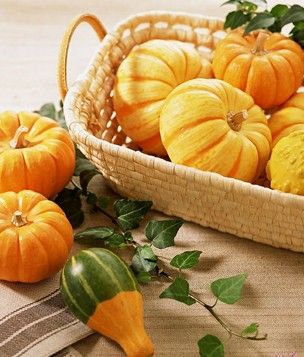Dietary efficacy of pumpkin
Pumpkin contains starch, protein, carotene, vitamin B, vitamin C and calcium, phosphorus and other ingredients. It is rich in nutrients and is a common source of vegetables for rural people and is increasingly valued by urban residents. Not only delicious, but also has a therapeutic effect can not be ignored. Chinese medicine practitioners believe that pumpkins are yellow, sweet, and full of vitality and cannot be ignored. The "Compendium of Materia Medica" records its effect of supplementing the benefits of Qi and clarifying the "Southern Yunnan Materia Medica" cloud "Lee urine". Modern medical research points out that 7-77% of pectin in pumpkin fruit has strong adsorption ability, can bind and eliminate bacteria and its toxic substances in human body, protect gastrointestinal mucosa, and have certain curative effect on peptic ulcer. The rich Vitamins in the pumpkin's fruit have the function of protecting the mucosa, which has a certain effect on the protection of eyesight, prevention of eye diseases, beauty and weight loss. Therapeutic efficacy Go dry Pumpkin is rich in nutrients, it can help the normal secretion of pituitary hormones, enhance immunity, and relieve the dryness of spring. Blood Pumpkin contains "cobalt", there is blood, the famous doctor Chen Xiuyuan said in the Qing Dynasty: "Pumpkin is a wonderful product of blood." Beauty often eat pumpkin, can make the stool smooth, pleasing skin, especially for middle-aged women have a cosmetic effect. Insecticide Eat more pumpkin can be used for the treatment of children aphids, tapeworms, diabetes, and can reduce the risk of measles. Precautions Gastric fever patients do not eat Chinese medicine believes that patients with stomach-heat are advised to eat cold and cold foods, while autumn pumpkins are warm and hot. Patients with stomach-heat eating pumpkins will increase stomach heat and aggravate the condition. Hot patients should not eat Chinese medicine believes that hot shower caused by inflammation of the urinary tract infection, diet should eat cold cool heat Tonglin things, and pumpkin is a warm food, hot shower patients do not eat. Vitamins Vitamins are a kind of trace organic substances that humans and animals must obtain from food in order to maintain normal physiological functions. They play an important role in the growth, metabolism, and development of the human body. In the body, this kind of substance can neither be a raw material for body tissue nor a source of energy, but a kind of regulating substance, which plays an important role in material metabolism. Vitamin C,vitamin b3,vitamin raw material Xi'an Natural Field Bio-Technique Co., Ltd. , https://www.naturalnf.com
From the point of view of chemical structure, various vitamins are very different or even unrelated. Therefore, vitamins are usually classified according to their physical properties. They can be divided into fat-soluble vitamins (such as vitamin A, D, E, K, etc.) and water-soluble vitamins ( Such as vitamin C, vitamin B1, B2, B6, B12, pantothenic acid, PP, biotin, folic acid, choline, etc.). Water-soluble vitamins are easily soluble in water but not soluble in organic solvents. They are stored in the body after absorption. Excessive amounts are mostly eliminated in the urine; fat-soluble vitamins are easily soluble in organic solvents but not in water. They can be absorbed by the body with fat and stored in the body, and the excretion rate is not high.
From the perspective of obtaining methods, vitamins can be divided into natural products and chemical synthetic products. Because natural vitamins are limited by raw materials and extraction technology, their yields are low, and their prices are high. Therefore, chemical synthesis takes the lead, accounting for about 80% of the total vitamin output. Among the various segments of the vitamin industry, vitamin B, vitamin E, vitamin C and vitamin A have the largest market shares, 33%, 30%, 21% and 13% respectively. Other vitamins have a smaller market share, accounting for only 3%.